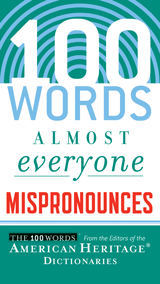
|
|
acumen aegis affluent almond antipodes asphalt babel banal boatswain cache cacophony cadre Celtic chaise longue chiaroscuro chicanery chimera chutzpah claddagh coccyx coitus comptroller conch concupiscence coup de grâce covert cumin daiquiri debacle desuetude desultory detritus Diaspora divisive |
dour elegiac epitome epoch err feng shui flaccid forbade forte geisha genre gnocchi gyro Halley’s comet harass hegemony hovel impious jejune kiln kudos lingerie loath long-lived machination maraschino marquis metastasize mischievous moot mores Neanderthal niche nuclear |
oblique oeuvre often pace pastoral patina piña colada plethora portentous potash primer processes puerile quay quietus reprise respite ribald salve schism sherbet sloth stigmata strophe timbre triathlon Uranus victual viscount wont Xhosa ye |







